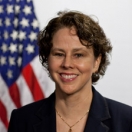
Yesterday, the Administration announced new regulations to protect students at career colleges from ending up with student loan debt that they cannot pay. The new rules will ensure that career colleges improve outcomes for students -- or risk losing access to federal student aid.
To qualify for federal student aid, the law requires that most for-profit programs and certificate programs at private non-profit and public institutions prepare students for "gainful employment in a recognized occupation." The new rules are part of President Obama’s commitment to help reduce the burden faced by student loan borrowers and make postsecondary education more affordable and accessible to American families.
How are certain programs leaving borrowers with the burden of student loan debt?
Too often, students at career colleges -- including thousands of veterans -- are charged excessive costs, but don't get the education they paid for. Instead, students in many of these programs are provided with poor quality training, often for low-wage jobs or in occupations where there are simply no job opportunities. They frequently find themselves with large amounts of debt and, too often, end up in default. In many cases, students are drawn into these programs with confusing or misleading information. The situation for students at for-profit institutions is particularly troubling:
- Students who attend a two-year for-profit institution costs a student four times as much as attending a community college.
- Eighty-eight percent of associate degree graduates from for-profit institutions had student debt, while only 40 percent of associate degree recipients from community colleges had any student debt.
- Students at for-profit institutions represent only about 11 percent of the total higher education population but receive 19 percent of all federal loans and make up 44 percent of all loan defaulters.
How will the new rule help improve outcomes for students?
The Department of Education estimates that about 1,400 programs serving 840,000 students -- of whom 99 percent are at for-profit institutions -- would not pass the new accountability standards. All programs will have the opportunity to make immediate changes that could help them avoid sanctions, but if these programs do not improve, they will ultimately become ineligible for federal student aid -- which often makes up nearly 90 percent of the revenue at for-profit institutions.
How will the final rule improve accountability and transparency?
The rule also provides useful information for all students and consumers by requiring institutions to provide important information about their programs, like what their former students are earning, their success at graduating, and the amount of debt they accumulated.
Does the new rule only apply to for-profit colleges?
The final rule apply to all sectors of higher education. In order to receive federal student aid, the law requires that most for-profit programs, regardless of credential level, and most non-degree programs at non-profit and public institutions, including community colleges, prepare students for "gainful employment in a recognized occupation." The new rule sets the standards for “gainful employment” programs to remain eligible to accept federal student aid.
So, to maintain federal student aid eligibility, gainful employment programs will be required to meet minimum standards for debt vs. earnings for their graduates. A program would be considered to lead to gainful employment if the estimated annual loan payment of a typical graduate does not exceed 20 percent of his or her discretionary income or 8 percent of his or her total earnings. Programs that exceed these levels would be at risk of losing their ability to participate in taxpayer-funded federal student aid programs.
How many institutions will be affected by the new rules?
The new rule is significantly stronger than the 2011 regulation, and followed an extensive rulemaking process that involved public hearings, negotiations and nearly 95,000 public comments. The new rule is tougher than the Department of Education’s 2011 rules because they set a higher passing requirement and lay out a shorter path to ineligibility for the poorest-performing programs. In 2012, the Department estimated that 193 programs would not have passed the previous regulations; with respect to these new rules, based on available data, the Department estimates that about 1,400 programs would not pass the accountability metric.
When do the new regulations go into effect?
The rule announced today will become effective on July 1, 2015. Institutions will have the opportunity to make immediate changes that will improve their programs and avoid ineligibility. The first several years will include a transition period that will take into account any immediate steps by institutions to reduce costs and debt.
Stay informed on the Obama Administration’s commitment to college affordability by signing up for White House education updates here.


